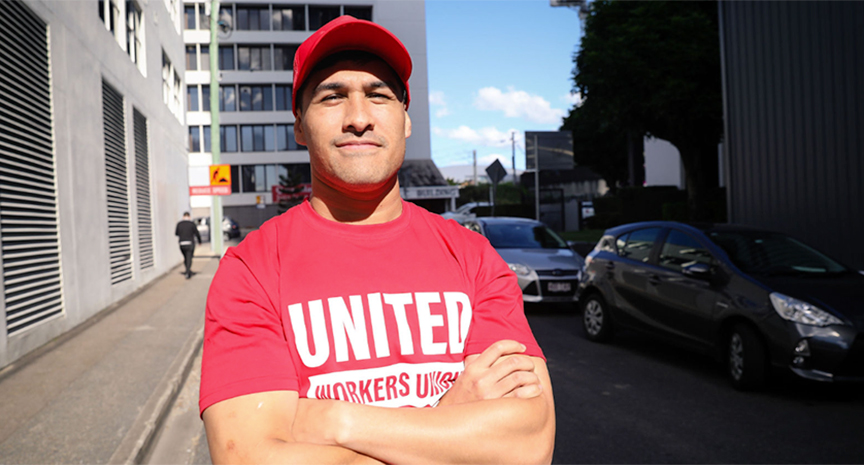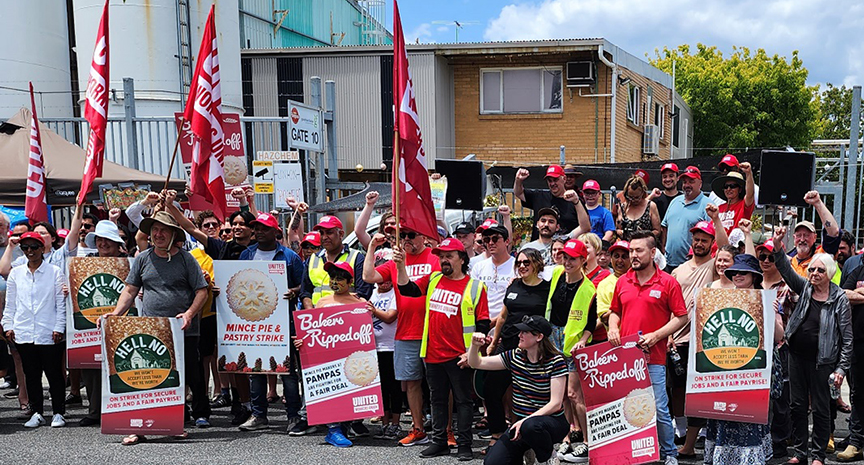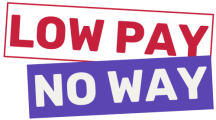I'm on an enterprise agreement. How will an award wage increase benefit me?

Key points
- When the FWC increases the minimum wage, they usually increase award wages by the same percentage rate
- If you’re on an enterprise agreement (EA), it may be tied to the award, so your wage will automatically go up
- If your EA is not tied to the award, any increase to award wages makes it a lot easier to bargain for a wage increase under a new EA
If you’re on an enterprise agreement (EA), you may be thinking that the Fair Work Commission’s (FWC) annual review of the minimum and award wages does not affect you. You’d be wrong. Here’s how the process works and why you should care.
But first, how does the FWC’s minimum wage decision relate to other wages?
From March to May each year, the FWC looks at submissions from unions, welfare groups, businesses and state and federal governments to consider increasing the minimum wage.
The commission also considers raising award wages because, at a basic level at least, they’re calculated using the minimum wage as a starting point. If you want to understand more about this process, read our blog on this topic.
It’s rare that a minimum wage increase does not result in the very same award wage increase. If the minimum wage goes up 4 per cent, then award wages almost always go up by the same amount.
So, it’s in every workers’ interest to see a rise in the minimum wage that then flows onto the award, and in most cases, your EA.
It’s good to remember though, awards are set as a minimum. If you’re on an enterprise agreement, you’d hope to be above the award and to keep it that way.
So, how does the FWC’s decision affect me if I’m on an enterprise agreement?
If you are on an enterprise agreement, you might be wondering how or if the FWC’s decision will affect you.
The short answer is yes, it does affect you. But, it’s not straightforward.

According to UWU’s Director of Strategic Power, Ben Redford, there’s ‘not an insignificant number’ of enterprise agreements that build in wage increases against the award. So for example, if the FWC puts the award up by 4 per cent, then your wage – no matter how far above the award it already is – will also go up by 4 per cent.
Other agreements may not explicitly refer to the award minimum, but it’s certainly integral to the bargaining conversation between your employer and your union.
Ben says any upward movement in the minimum wage is a positive for bargaining.
“…bargaining is not
primarily about argument,
it’s about power.”
“If the Fair Work Commission delivers a [minimum] wage increase that’s reasonably strong, it’s an important factor in union members’ case to their employer that their EBA increase should be at least as strong – or even stronger,” Ben explains.
Though he’s quick to point out the opposite is also true.
“Conversely, if the minimum wage increase is weak, the employer will say the Fair Work Commission has set the appropriate wage increase at this level – and that’s what we’re prepared to offer you, and no more.”
So, although there’s not a direct relationship with your enterprise agreement and the commission’s decision, the two influence one another.
We cannot afford to be complacent about awards
Ben says this indirect relationship is ‘a common kind of bargaining conversation’. It means we can’t afford to be complacent about the commission’s process.
“There is an indirect relationship, in terms of the minimum wage increase awarded by the Fair Work Commission informing the negotiations you’re having with an employer about what your new agreement’s going to look like.”
What if my enterprise agreement is significantly above the award?
If your EA is significantly above the award, it probably means that you have strong union membership and the bargaining process has been working in your favour.
It may seem obvious, but Ben reminds us that “bargaining is not primarily about argument, it’s about power”.
“You can make all the best arguments in the world, but if you don’t have any power, it’s not going to get you anywhere.”
Employers don’t like wage increases
Employers will invariably argue that there should not be any increase to wages. This means that unions have to make a case each year to counter employers’ submissions to the FWC to make sure the interests of workers are heard.
“What we often need to remind employers about is that the minimum wage-setting process is a conservative process, and it’s also a sort of economy-wide, universal process.”
Ben says the FWC is required by legislation to be conservative. It’s decisions are made in the context of the general economy, and not individual workplaces.

When things are tough, it can be smart to link pay increases in your EA to the minimum wage, because at least you know that you’re not going to go backwards. But it’s usually much more desirable to be well above the award.
“The bargaining conversation between a group of union members and an employer is fundamentally about the workers’ contribution to the success – hopefully – of the enterprise in which they will rightly believe that they should get their fair share.”
Supporting fellow members is what being union is all about
It’s important to remember that if you’re on an enterprise agreement, a lot of your fight has already been won by using the FWC’s decisions on the minimum wage as a starting point. When Fair Work raise the bar, it flows on.
For many of our fellow union members, especially in workplaces without a strong union membership, there are plenty more fights to be won to lift wages well above minimums set by the commission.
And although we all benefit as individuals when award wages increase, at the end of the day, being in a union is all about supporting our fellow members because it’s the right thing to do.

